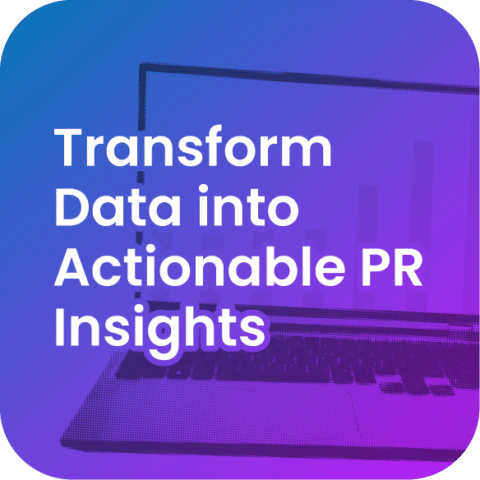The best PR campaigns are the well-planned ones. There is no way around this. The more effort you put into your campaigns, the better results you can expect. After all, a great PR campaign isn’t just a single post on social media or press release, it’s a multi-channel process that leads to specific results.
In this article, we’ll show you how to plan and execute a creative and authentic PR campaign in 4 steps.
Understand your target audience
If your PR campaign aims to engage everyone, it will fall flat on its face. The very first step of all your PR campaigns should be to choose the right audience.
That way you can customize your message and approach to a specific group of people. Nowadays, customers expect a personalized message and research shows that an overwhelming 97 percent of marketers invest in personalization efforts leading to an increase in revenue higher than 20 percent.
With all that being said, it’s easy to see why customization is the way to go with all your PR efforts.
Source: neilpatel.com
If you’re looking to engage young people, you need to understand how to reach them and what they’re interested in. So for example, if you’re looking to spread the word about a new streaming platform, make sure to know where your audience is and how to present your offer to them.
You need to know:
- Specific demographics (location, age, gender, education and more)
- Their interests, needs and wants
- Behaviors
- Information sources
Once you define your buyer personas, you will be able to create amazing content they will want to engage with.
Create measurable goals
In order to understand how well your PR campaign performed, you need to set specific and measurable goals.
It’s not easy to measure all the results of PR campaigns, especially brand awareness. Unlike sales and marketing, where you can track every effort and have specific numbers to work with, when it comes to PR, you have to get creative. That’s why most PR companies invest in media monitoring tools. That way, you can automate parts of your reporting.
Think about what you want your campaign to achieve. Do you want to:
- Reach a new audience
- Sell more products and services
- Introduce a new product or service
- Create a loyalty program
- Better your public image
Whatever it is, make sure to set specific goals and KPIs. They could be an increase in web traffic. If this is a goal you’re interested in, make sure to have a specific number in mind. For example, it can be a 20 percent increase in web traffic.
That way you can track your PR campaign results. This is especially important if you work for clients. They will probably ask you to outline your results in the PR proposal you sent at the beginning of your relationship.
Another popular goal is an increase in social media engagement. That’s an easy metric to keep track of since all social media platforms offer some type of analytics.
Source: savvybusinessgals.com
However, if you’re determined to measure your brand awareness efforts, you can rely on share of voice. It helps you measure the visibility of your brand.
The formula for measuring share of voice is: number of mentions of your brand/total number of brand mentions (yours + your competitors’) x 100.
It’s not as specific as the previously mentioned metrics, but it will show you whether your direction is great or needs improvement.
Do your research
Being creative is an important part of your PR campaigns, but it’s far more essential to do thorough research. We’re talking about detailed SWOT analysis consisting of surveys, interviews, market research and more.
Once you have your target audience, you need to understand your place in the market and what makes you special enough for your target audience to choose you over your competitors.
It’s called a USP—a unique selling point. This is what sets you apart and helps you gain new markets. Make sure to conduct detailed competitor research. By the end, you should know what type of person would choose your product over your competitor’s, how your customers use your products and what their purchasing behavior is.
This will help you shape your PR campaigns, as well as marketing and sales ones. You also need to research your market and any market trends that can help you grow your business. Depending on your industry, you’ll probably want to work with influencers. Influencer collaborations can be fun, however, you need to research the people that you’re starting a business relationship with. You can also use an influencer search tool. It will help you easily find and connect with the best influencers in your niche.
The more research you do in this phase of your PR campaign the better results you can expect.
Get creative
Consumers nowadays are more media literate than ever before. That means that you can no longer create basic PR articles and cringy videos you’re expecting to go viral.
Get creative and put out the content you would want to read and watch. Don’t be afraid to spend time on your copy and other types of content. When you think back on your favourite PR campaigns of the past, you’re probably thinking of ones that broke the mould and were really creative.
Be brave and think about new ways you can present your message. Get inspired by creative PR campaigns like Duolingo’s TikTok channel, Ikea’s Stay Home campaign, Wendy’s Twitter profile and more.
All in all, it’s important to rely on specific data and create PR campaigns that are trackable and measurable. That way you’ll know exactly what works and what doesn’t, which will help you optimize your campaigns and reach better results.






